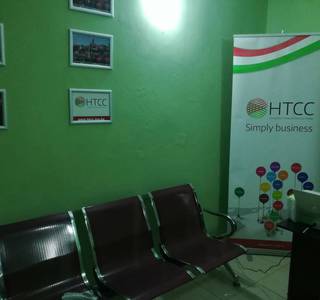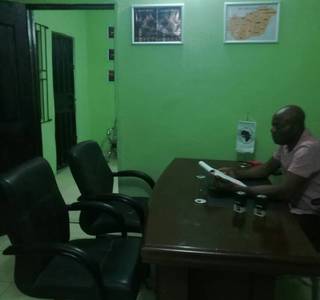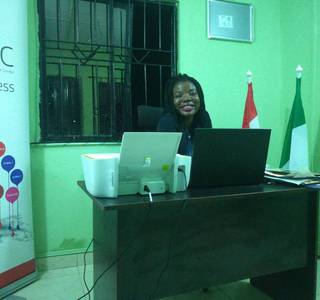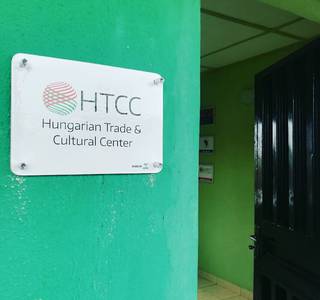HTCC Nigeria
Form of state: Republic
President: Muhammad Bukhari
Independence: 1 October, 1960
Area: 923 768 km²
Population: 187,000,000
Official language: English
Religion: Muslims 50%, Christians 40%, Other 10%
Capital: Abuja
Currency: Nigeria Naira
As of 2015, Nigeria is the world's 20th largest economy, worth more than $500 billion and $1 trillion in terms of nominal GDP and purchasing power parity respectively. It overtook South Africa to become Africa's largest economy in 2014.The 2013 debt-to-GDP ratio was 11 percent. Nigeria is considered to be an emerging market by the World Bank; it has been identified as a regional power on the African continent, a middle power in international affairs, and has also been identified as an emerging global power. However, it currently has a "low" Human Development Index, ranking 152nd in the world. Nigeria is a member of the MINT group of countries, which are widely seen as the globe's next "BRIC-like" economies. It is also listed among the "Next Eleven" economies set to become among the biggest in the world. Nigeria is a founding member of the African Union and a member of many other international organizations, including the United Nations, the Commonwealth of Nations and OPEC.
ECONOMY
The most important industry in the country is oil extraction and processing. The dependence of the national economy on oil is linked to the change in world oil prices. Nigeria Opec Member State. Its main harbor is Port Harcourt, which carries out petroleum trade. There is also considerable fertilizer production, vehicle manufacturing, simple crafts and other light industry. A significant cement industry was built for limestone layers.
NATURE
There are saltwater marshes along the coast: mangrove forests. Slightly higher and north the marshes are fresh water. Their vegetation is completely different. Even taller tropical rainforest grows, but its stock decreases rapidly due to logging and a less-rich, secondary forest is formed. To the north, a bunch of oak trees, ebony of West Africa, form groves, or patchy patches of mucus species alternating with grassy savannahs. The vegetation of most of the country is a word of mouth. There are several kinds of savannahs in Nigeria. The "guinean" savannah grows tall grass, scattered trees are high, large rivers are accompanied by galleries. The "Sudanese" savannah is a similar landscape, but the grass is shorter, the trees are lower. In the "secular" savannah the grassy parts alternate with acacia and incense trees with pungent, dry shrubs. Going north, there is less rainfall. In the South, tropical rain forests allow rainfall, where the powerful tropical monsoon drains the landscape with 1250-3500 mm annual precipitation. Here the dry season is in August and from November to February. Due to the heavy rains on the beach, we find mangroves, sea-going forests, though these areas have been heavily restored by the demolition. In southern states, the relative humidity is very high and the temperature fluctuates steadily between 20 and 30 ° C day and night. Towards the north, tropical forests give way to the more open plateaus, and temperature differences and fluctuations will increase. The highest temperature is between 30 and 40 ° C and the coolest fluctuates between 15 and 25 ° C. Northern Savannah receives about 1000 mm rainfall per year in two shorter rainy seasons. When dry, dusty, sandy wind blows in the long dry season from the Sahara, the frost is not unknown in some northern regions. Far far north, some landscapes are semi-desert in the low annual rainfall.
TOURISM
In the south, the sea is bordered by idyllic sandy coasts for miles, which is broken only at the mouth of the streams. The country is characterized by the multitude of ethnic groups and natural attractions (eg waterfalls). An outstanding tourist area of the Mambilla plateau in Taraba state. The culture and place of residence of the ethnic groups that guard their traditions is the same as the cultural heritage of the world, as is the last forest of South Nigeria, the sacred forest of Osun, near Osogbo.
TOURIST DESTINATION
- Nike Art Center
- Lekki Conservation Center
- Lekki Market
- Freedom Park Lagos
OFFICE CONTACT
No,1 Odemola Aramoko
shopping complex, Cannan Estate, Ajah Lagos



